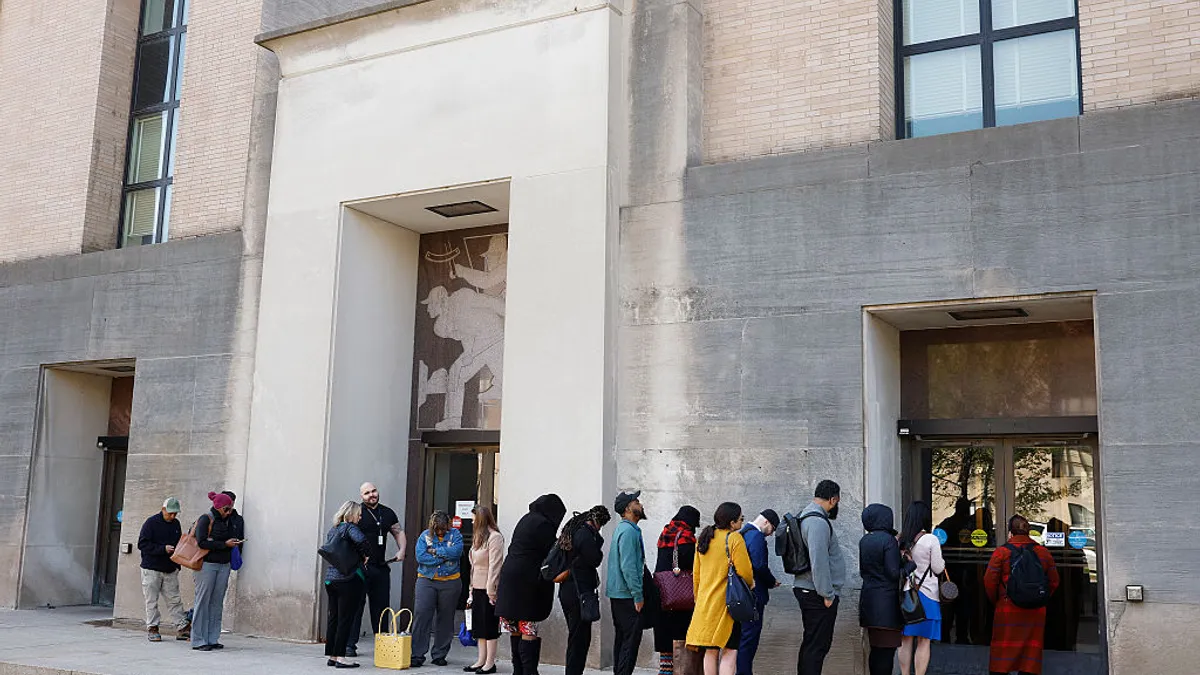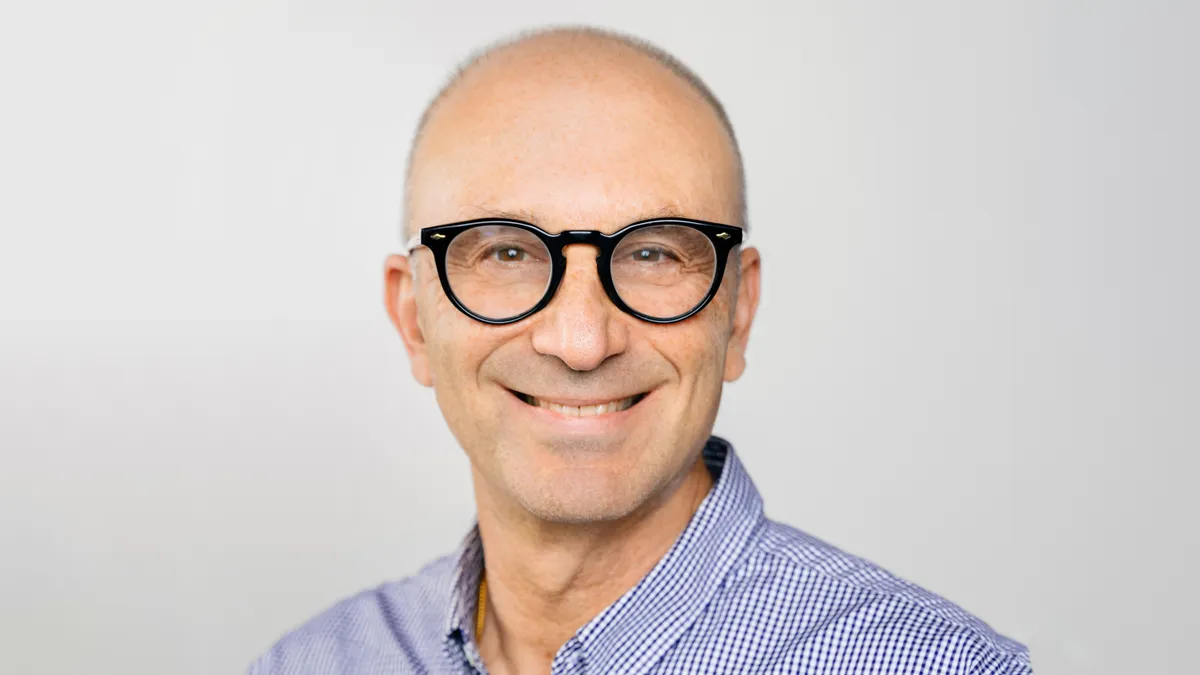CEO pay has long been on the rise.
In general, pay for these top execs skyrocketed 1,460% from 1978 to 2021, according to data from the Economic Policy Institute. And even when they don’t technically take a high base salary, CEOs frequently bring home tens of millions through stock options, biotech execs included.
According to a ranking from CEO World Magazine, the U.S.’s 23 highest-paid biopharma CEOs brought home salaries in 2022 ranging from $124.9 million to $18.5 million. A quick scan of the names on this list reveals two Davids, two Roberts and two Daniels — but just three women.
Many of the companies they lead are household names, like Pfizer and Moderna, and three, Zentalis Pharmaceuticals, AnaptysBio and CRISPR Therapeutics, are clinical-stage. And the high salaries came during a particularly good year for growth in biopharma as 15 of the top 20 companies reported an aggregate 5.2% revenue jump over the previous year.
Here, we take a look at five of the best paid biopharma CEOs in the U.S. The compensation numbers are sourced from SEC filings and represent total pay for 2022, including base salaries, bonuses, stocks and other payments.
Doug Ingram, Sarepta Therapeutics
The compensation: $124.9 million
The rundown: Ingram was at the helm of two big-ticket acquisitions before 2017, the year he took on the CEO role at Sarepta Therapeutics, a commercial-stage biopharma company developing RNA-targeted therapeutics for rare neuromuscular diseases.
After a 19-year run at Allergan, Actavis acquired the company while Ingram was president in 2015 in a cash and equity transaction valued at approximately $70.5 billion. Ingram then jumped into the CEO and president role of Chase Pharmaceuticals until Allergan acquired Chase in November 2016 for an upfront payment of $125 million, plus additional potential milestone payments.
Since Ingram joined Sarepta Therapeutics, three of its four commercial drugs received regulatory approval, including Elevidys, the first gene therapy to treat Duchenne muscular dystrophy, which got the go-ahead in June. However, recent news that Elevidys failed to meet its phase 3 primary endpoint sent Sarepta’s stock tumbling 37%.
Pablo Legorreta, Royalty Pharma
The compensation: $93.5 million
The rundown: Legorreta is founder, CEO and chairman of Royalty Pharma, a company that’s true to its name: Its portfolio consists of pharmaceutical royalties. Since its 1996 founding, the company has “meticulously acquired royalty interests in many of the industry’s leading drugs by sales,” it says. These investments include GSK’s Trelegy Ellipta, Johnson & Johnson’s Tremfya, Lilly’s Emgality and Pfizer’s Lyrica, among many others. The company then funds later-stage biopharmaceutical R&D for its assets.
It recently entered into a $150 million funding agreement with Ascendis Pharma based on revenue from Ascendis’s human growth hormone, Skytrofa.
In addition to his work at Royalty, Legorreta is co-founder of the life sciences of debt capital firm Pharmakon Advisors; co-founder of the biotech ProKidney; and is founder and chairman of the nonprofit Alianza Médica para la Salud, which provides continuing education to healthcare providers in Latin America.
David Epstein, Seagen
The compensation: $57.5 million
The rundown: Seagen had reason to celebrate earlier this year when Pfizer agreed to acquire the biotech in a deal worth $43 billion. But before then, the cancer-focused company went through a turbulent — and expensive — leadership year.
Epstein, a former CEO of Novartis Pharmaceuticals, was Seagen’s third chief exec of 2022, and racked up his high-dollar compensation for the year despite only taking on the role in November. The company paid its other two CEOs well that year, too. Dr. Roger Dansey, the former chief medical officer and president of R&D who served as interim CEO from May to November and made $36.4 million. Dansey’s interim role came after former CEO and company cofounder Clay B. Siegall resigned in May after being arrested for alleged domestic violence (Siegall got paid $32.7 million in 2022). Epstein came to Seagen with 30-plus years of experience, most recently as executive partner at Flagship Pioneering.
Dr. Kimberly Blackwell, Zentalis Pharmaceuticals
The compensation: $36.6 million
The rundown: Zentalis is a clinical-stage company developing small molecule therapeutics for cancer. It’s also the only company on this list that isn’t generating revenue from commercial products and according to analysts isn’t predicting to become profitable for several more years. So why the high CEO salary? In its SEC filing, Zentalis said its goal with executive compensation is to link pay with company performance and that its clinical programs, if approved, have the potential to “significantly impact clinical outcomes of patients with cancer.”
One of Zentalis’s lead candidates is azenosertib, which the company calls “a potentially first-in-class and best-in-class” small molecule Wee1 inhibitor that’s being developed in three therapeutic settings: as a monotherapy, in combination with traditional chemotherapy and DNA-damaging agents, and in combination with molecularly targeted agents.
Blackwell took over the CEO role from the company’s co-founder in May 2022 and had been an independent director of Zentalis since 2020. She also served as chief medical officer for the precision medicine company Tempus, as vice president of early phase oncology and immuno-oncology at Eli Lilly, and was a tenured professor of oncology at Duke University School of Medicine.

Dr. Albert Bourla, Pfizer
The compensation: $33 million
The rundown: Perhaps the most recognizable name on this list, Bourla has served as Pfizer’s CEO since 2019, taking the reins just before the COVID-19 pandemic. He led the company through d vaccine development in eight months without public funding, and instead investing more than $2 billion dollars at risk, the company said. But that wasn’t his first experience driving Pfizer’s vaccine business.
Previously, Bourla served as group president of the Vaccines, Oncology and Consumer Healthcare business unit, growing Pfizer’s vaccines business by 50% within four years, the company said at the time of his CEO appointment. All together, he’s been with Pfizer for more than 30 years, serving as COO before being named CEO. Before that, he led Pfizer’s Innovative Health business, which the company said recorded revenues of $31.4 billion, as well as income before taxes of $18.3 billion in 2017, which significantly increased both operational growth and profitability. Bourla also established Pfizer’s Innovative Health Emerging Markets region.
Pfizer’s third quarter earnings showed a drop in revenue as its COVID-19 business slows, and now the company has launched a “cost realignment program” in an effort to realize $3.5 billion of net cost savings by the end of 2024 through measures such as facilities closures.




















